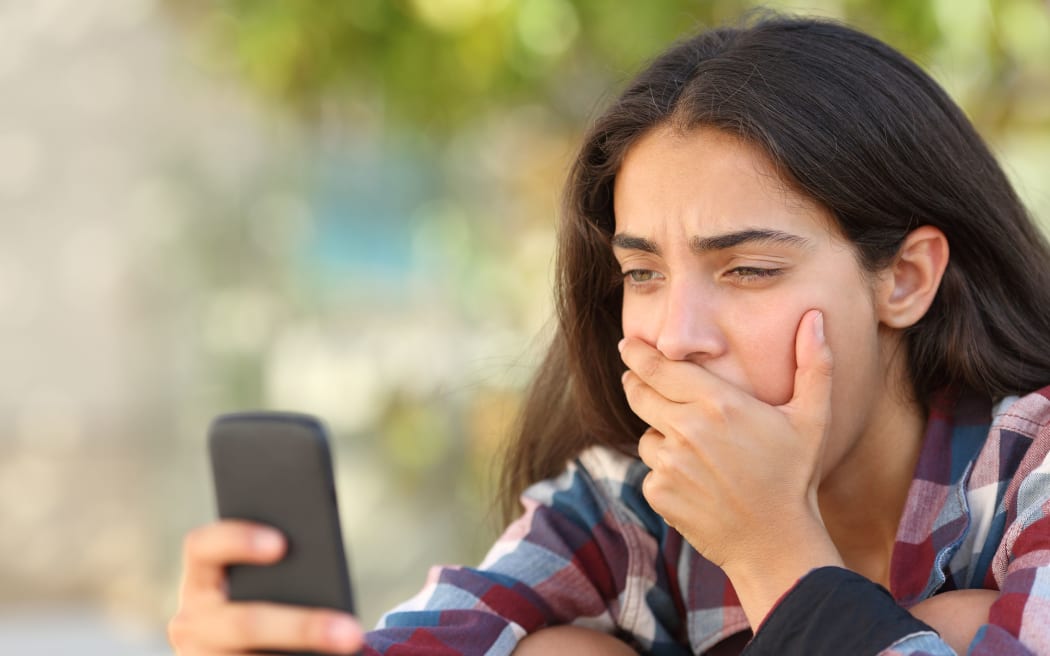Solid support from parents and peers is no match for the ‘sugar satisfaction’ lure of the internet for teenagers, a new study says.
Researchers at the Sydney Business School spent four years assessing the impact of social support on internet use on a group of nearly 3000 14-17 year olds.

Photo: 123rf
Dr James Donald, senior lecturer in Work & Organisational Studies, told Jim Mora that the results were surprising: the better supported a young person was by their parents and their peers, the more likely they were to be hooked on the internet.
“The parental support was a precursor to more compulsive internet engagement, more compulsive internet activity.”
Dr Donald says the study identified two possible reasons for the findings.
“Parental support is critical to young people’s wellbeing but it’s not enough when it comes to the power of the online world and just how engaging it is. Of course, anyone with a teen will be grappling with this on a daily basis.
“The other possibility is that these kids, who are wanting more support from their parents, and who are seeking it and getting it, have other issues going on around anxiety and mood and we know all of these things are again, the everyday for so many families. It’s that that’s pushing them online and not the presence or absence of parental support.”
Donald says awareness is key for parents.
“A lot of parents are just not aware of just how addictive and engaging this stuff is.”
He advises starting out with basic rules of engagement so children know how much time they can spend online. As children get older, parents and caregivers should look at co-setting boundaries, Donald says. Agreeing basic rules - and sticking to them - is crucial.
“This is where the rubber hits the road. If you’ve got those boundaries in place when they’re little, when they’re five, six and seven, then your life is going to be a lot easier when they're 14, 15 and 16.
“Another question is, who buys devices for kids? The kids don’t buy them, so at some point as a parent you’re making a decision - and I would argue, mostly unthinkingly - that this is necessary or good for them. It’s a very important question to have as a parent when they’re little: what device are we going to have and at what sort of age?”
Donald says parents with concerns about their offspring’s internet behaviour should first examine their own habits.
“It takes a level of awareness and discipline to be not just scrolling on your phone as you’re talking to your child. What am I doing as a parent?”
Donald says researchers expected to learn that teens with strong social ties and close real-life friends would be protected from the lure of online activity, but this wasn’t the case.
“We thought that for young people with strong social ties, that could be a bit of a buffer against being pushed online to find friends. But for young people, their strongest source of social support is still their parents. Even when they’re 17.
“The other thing that we found that was quite surprising was that having those close social supports from friends didn’t reduce your likelihood to be compulsively online. It didn’t increase it either.”
Donald says internet use is designed to feed the brain’s short-term stimulus response.
“The fundamental thing that young people need to learn in order to thrive, is a thing called self-regulation. This is not new news. All that stuff is the direct target of many of the platforms that young people are engaging on because it's designed to feed that dopamine response in their brains. It’s sugar satisfaction, to put it very crudely. That’s what’s at stake here.”
He describes children interacting with the internet as ‘the greatest experiment we’ve ever conducted with our kids’.
“It’s early days, but the preliminary results are not looking fantastic and big tech admits this as willingly as anyone else.”

